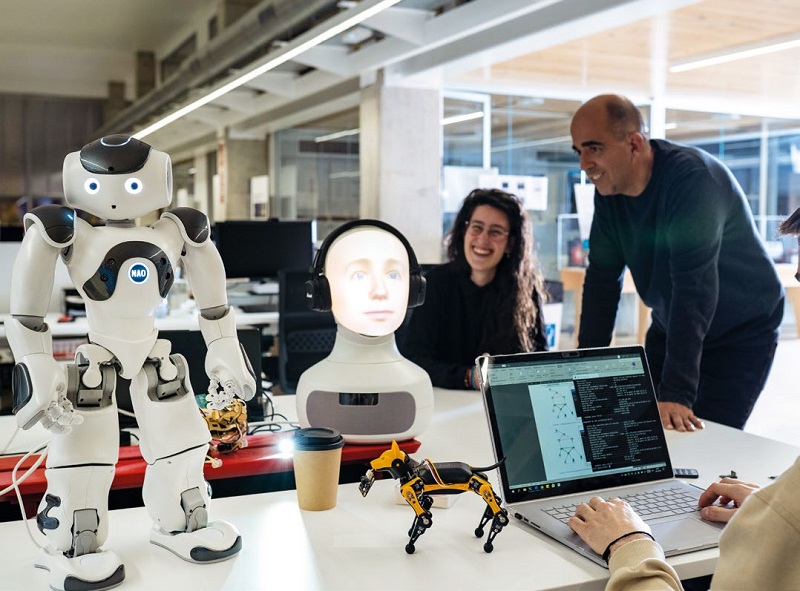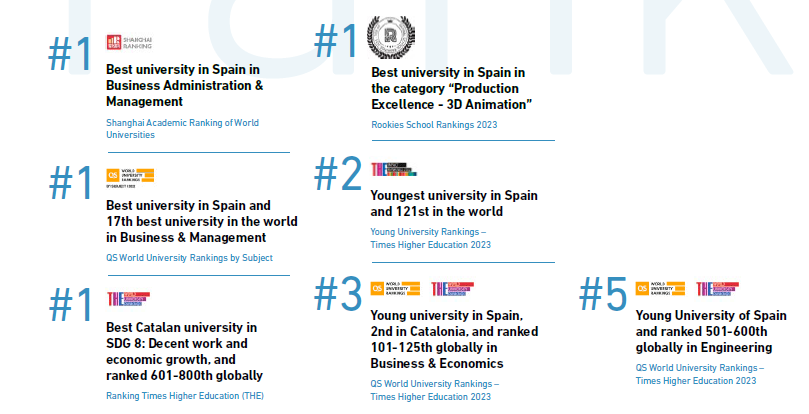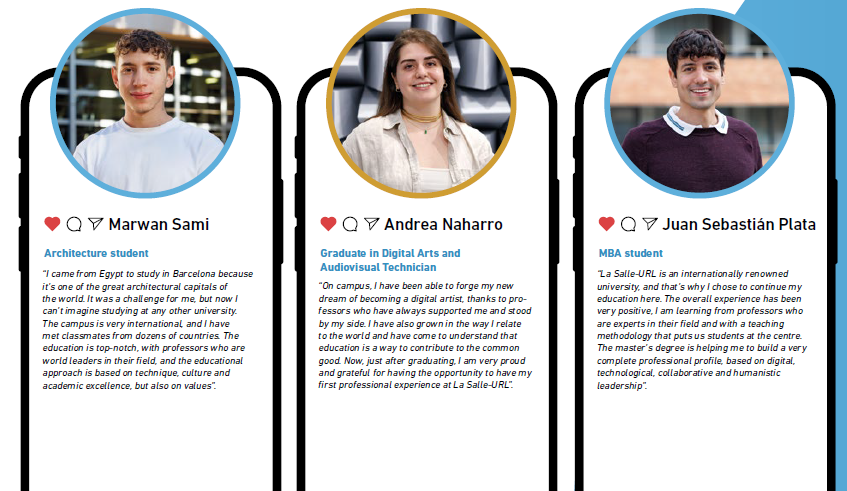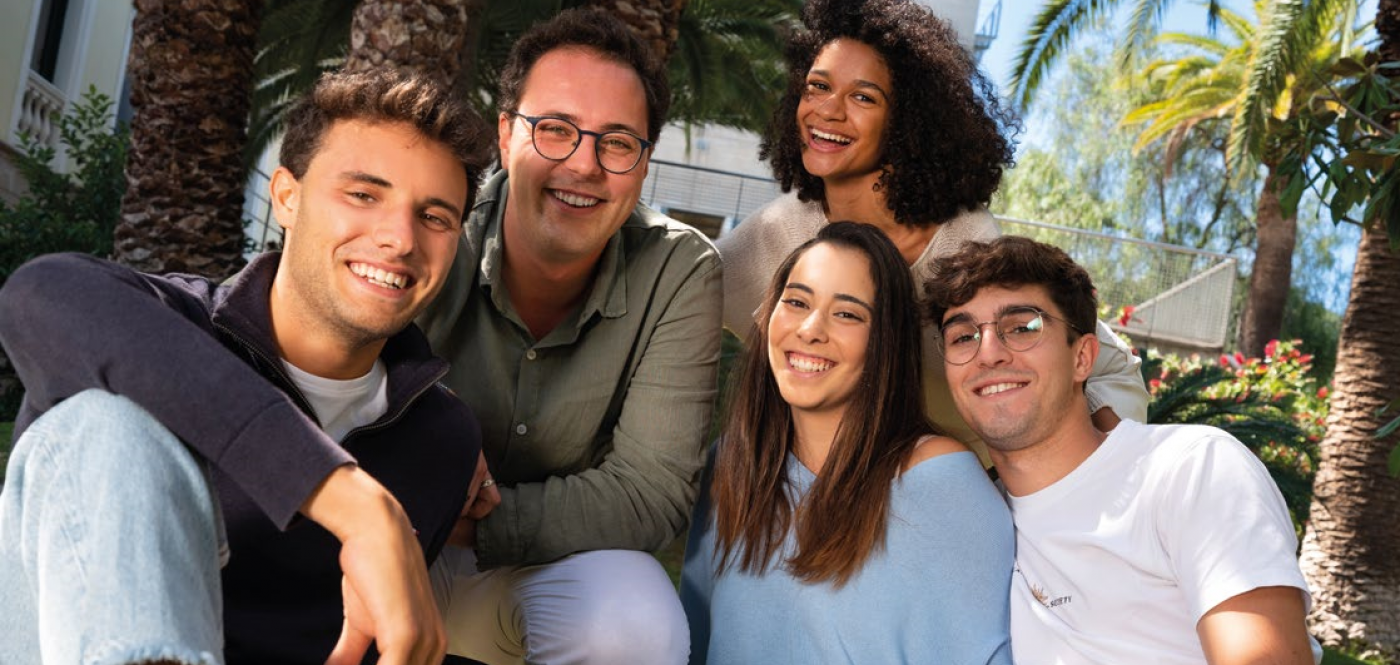Each academic year La Salle Barcelona – Universitat Ramon Llull takes stock and collects the testimonies of the people who are part of the campus through the impact report, and you can now consult the one for the 2022-23 academic year. Based on the motto 'Better together', the report reviews everything that has been done and reinforces the mission of transforming the future through a humanistic education, as explained by the general director, Josep M. Santos: " We train students with skills for a global world and we understand internationality as something that helps us in the search for harmony and understanding in a world in need of peace".
During the 22-23 academic year, as recorded in the report, La Salle Barcelona – Universitat Ramon Llull constituted its Corporate Board Council, co-organized the XIII Encuentro of the International Association of La Salle Universities (IALU), appointed Christopher Kennett as Dean of the Faculty of International Business and Digital Economy, he strengthened his research structure with two new research groups, and, among other things, strengthened his international presence through participation in university alliances such as ENGAGE.EU and SACRU.
Ethics and values, social impact and the 2030 agenda
La Salle Barcelona – Universitat Ramon Llull trains experts in various areas of knowledge from its four centers: the School of Engineering, the School of Architecture, the International Faculty of Commerce and Digital Economy and the Faculty of Philosophy.
Currently, nearly 6,000 students study on the campus, more than 30% of whom are international, and a total of 138 training programs are offered including degrees, official masters, own masters, postgraduates, bachelors and doctorates. In addition, nearly 50% of new undergraduate students study on scholarships each year. The campus works to bring talent to society and connect students and companies with initiatives such as Talent Week.
The university's social commitment is reflected in different lines of action: 286 students participate in social volunteering and community service activities and projects and several sustainability projects linked to the Sustainable Development Goals (SDG) have also been launched, such as 'La Salle Social Challenges' or the HP & La Salle-URL scholarships to promote female talent. Both research and knowledge transfer are two of the main drivers of campus activity and are manifested through active projects, publications in indexed journals and participation in conferences.

Entrepreneurship and educational excellence
The relationship with the business world and the impetus for entrepreneurship is made through La Salle Technova Barcelona, the innovation park of La Salle Barcelona - Ramon Llull University, which acts as a hub connecting startups, investors and corporations.
Another of the values that define La Salle Barcelona - Universitat Ramon Llull is educational and institutional excellence, and the good position in the rankings shows this::

What we do and how we do it: our distinctive style
The New Learning Context (NCA) is La Salle's educational model that proposes to improve the educational experience to adapt it to the context of the reality of today's society. It presents an organizational, methodological and evaluative proposal that gives full meaning to the education of the person by addressing, in a comprehensive way, all its dimensions during the different stages of student development, who become the protagonist of their own learning.
The deployment of the NCA takes place in all the degrees taught on campus, with a direct impact in three major areas: teaching, personal growth and support and guidance. This educational model focuses on four axes: active methodologies, assessment, collaborative learning and digitization. During the 22-23 academic year, the NCA completed its deployment in all courses of the 19 university degrees on campus, with an impact on more than 300 subjects.

